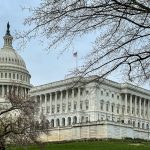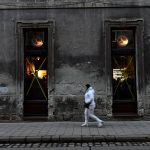Photo by JC Johnson.
ARTICLE BY KAMI L. RICE
It’s been a wearying couple of weeks for volunteers working with Afghans pursuing pathways to safety in the United States. In addition to being the editor of this fine publication, I count among those volunteers, assisting Afghans resettling in the U.S. and Europe as part of the NGO Allied Shepherd. This work began “accidentally” three and a half years ago when Kabul fell to the Taliban and journalists needed help to reach safety.
The day after President Trump’s inauguration, I woke up to messages from devastated Afghan friends as word of the president’s executive orders spread across the globe. Two of these orders in particular affect America’s wartime Afghan allies. The new president’s right to review policies and expenditures isn’t disputed, but advocates for Afghans are disheartened by the slash-and-burn governance method that is endangering people who, in the case of Afghans, literally protected American lives and supported America’s values.
At present two primary pathways to the U.S. exist for Afghans who worked alongside U.S. forces and promoted American ideals in Afghanistan: as a special immigrant visa (SIV) holder, a pathway mandated by Congress with specific qualification requirements, and as a refugee, which covers many Afghan allies who don’t meet the narrow SIV qualifications but worked just as, if not more, closely with U.S. entities. In both cases, applicants pass through stringent, yearslong vetting.
While the SIV pathway for Afghans who were directly employed by the U.S. government for at least a year technically remains open, President Trump’s executive order suspending foreign aid has effectively shut down SIV allies’ pathway to safety by blocking funding for the essential support services, such as flights and resettlement assistance, that are built into the SIV program.
The president also signed an executive order suspending the U.S. Refugee Admissions Program (USRAP) for at least 90 days, “until such time as the further entry into the United States of refugees aligns with the interests of the United States.” While this might sound reasonable on the face of it, a 90-day pause creates further havoc for families that have already been waiting for years to reach safety.
In the case of Afghans, many have had to secure visas from neighboring Pakistan in order to go through U.S. consular processing, since the U.S. has no embassy or consulate in Afghanistan. Securing these temporary visas for Pakistan has been difficult because Pakistan doesn’t want Afghans there, and families are not allowed to work while waiting in Pakistan during yearslong U.S. processing. Now, Pakistan says that due to the pause in U.S. refugee processing, and the fact they no longer have guarantees that Afghans awaiting their U.S. visas will ever leave Pakistan, Afghans will be deported from Pakistan by March 31. For the most endangered Afghans who worked with U.S. forces, being deported back to Afghanistan, where the Taliban still carries out reprisal killings, is a death sentence.
Read Kami’s recent op-ed for Religion News Service to learn more.
An Afghan Family Reunited Just in Time
In August 2021, as chaos descended on Afghanistan, Mir Nasratullah Ansari was tasked with translation duties for the U.S. military amidst the frenzied evacuation at Kabul airport’s Abbey Gate and East Gate. Finally, in what turned out to be minutes before the explosion at Abbey Gate that claimed the lives of U.S. service members and Afghan civilians, members of the U.S. government told Mir it was time to leave his post at the airport gate. They said he should get on an evacuation flight and his family would be able to join him later.
That promise took over three years to come to fruition, but finally, last December, his wife and three kids arrived in Nashville, Tenn. Mir is a celebrated bodybuilder and a nutritionist who works for the Nashville International Center for Empowerment, which assists new refugee arrivals as they settle and integrate into Nashville life. He carries great concern for Afghan families who are still separated and who face increased uncertainty under the current pauses and suspensions in the U.S. programs that help them reunite. He’s relieved that his family was able to reach Nashville before the doors slammed shut.
Kami Rice, Anthrow Circus’s editor, plies her insatiable curiosity from a base in northern France and from perches in coffeehouses, cafés, and friends' homes the world over. As a freelance journalist, she has reported for the Washington Post, The Telegraph, The Tennessean, The Bulwark, and Christianity Today, among many others. Her more creative work has appeared in Another Chicago Magazine, The High Calling,and Washington Institute's Missio.Her French to English translation has been published by Éditions Beaux-Arts de Paris. She also edits manuscripts and articles for a variety of clients and loves learning about the lives of regular, real people wherever she finds herself.









